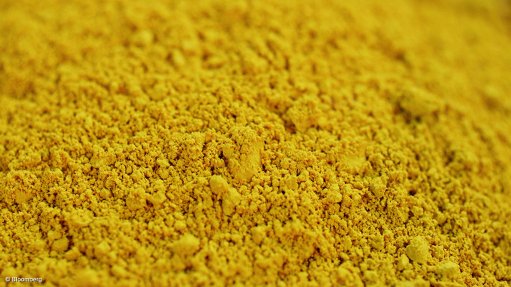
Photo by: Bloomberg
TORONTO (miningweekly.com) – TSX- and ASX-listed Paladin Energy on Friday revealed that it had suspended production at its Kayelekera mine, in Malawi, saying the operation was a severe drain on the company’s finances in the sustained low uranium-price environment.
The Perth, Western Australia-based uranium producer with operations in Australia, Africa and Canada said it would place the operation on care and maintenance to preserve the orebody until a sustained price recovery occurred and production could be resumed on a profitable basis.
The company had notified the Malawi government, which has a 15% interest in Paladin’s operating subsidiary Paladin (Africa) Limited (PAL), and would be working with the relevant government authorities to implement the suspension.
Paladin blamed the continued depressed price for uranium oxide (U3O8), which has been severely negatively impacted since March 2011 following the nuclear reactor damage caused by the Fukushima earthquake and tsunami, in Japan, as one of the main reasons for its decision.
During this period, the spot uranium price has more than halved from $72.63/lb before the Fukushima disaster struck, to a current price of $35.50/lb.
Paladin MD and CEO John Borshoff said that the decision to place Kayelekera on care and maintenance would be in the best long-term interest of all stakeholders, as the operation would resume only when it was profitable to do so.
"The Kayelekera mine has performed exceptionally well technically, with production levels recorded at or near nameplate capacity over the past 12 months and significant achievements made in PAL's cost reduction programme.
Paladin said that based on a uranium price of $35/lb, Paladin would have had to inject a further $20-million to $25-million in cash for each of the next two years to maintain the operation.
The company said that it expected placing the mine on care and maintenance would improve its forecast cash flow position by $7-million to $10-million in 2014 and to between $20-million to $25-million in 2015.
The cost of suspension, estimated at $12-million a year, would be funded from selling stockpiled U3O8 and produced during the rundown phase, Paladin said.
The company noted that production and cost estimates for its Langer Heinrich mine, in Namibia, which has a significantly lower cost profile than the Malawi mine, would not be affected by the suspension.
As a result of shuttering Kayelekera, the company revised downwards its full-year output guidance to between 7.8-million and 8-million pounds of U3O8, from its previous guidance of 8.3-million to 8.7-million pounds.